New Scientist covers the latest developments in science and technology that will impact your world. New Scientist employs and commissions the best writers in their fields from all over the world. Our editorial team provide cutting-edge news, award-winning features and reports, written in concise and clear language that puts discoveries and advances in the context of everyday life today and in the future.
Elsewhere on New Scientist
Stephen Hawking’s parting gift • The physicist’s final theorem will inspire deep debate for years to come
New Scientist
Superstar
1.5°C climate goal is slipping away • The latest IPCC report reiterates that unless we take drastic action to cut emissions now, the world will miss its global warming target, explains Michael Le Page
Covid-19 may have first jumped to people via raccoon dogs
The best way to spot a liar is to focus on the details of what they say
Quantum physics might be key to life on Titan
Some asteroids may be ‘dark comets’ with invisible tails
Beethoven’s genome hints that he died from liver damage
Superconductor discovery called into question
NASA unveils new spacesuit for moon mission astronauts
Bird flu infects mammals’ brains • H5N1 virus may be causing neurological symptoms in foxes and other animals
Earliest evidence of meteorite impact is 3.48 billion years old
Quantum computers may have found a practical use
Earth’s early oxygen may be a result of earthquakes
Notre Dame’s innovative use of iron • The 2019 fire at the cathedral has revealed how metal staples were used as reinforcements
How poisonous amphibians evolved warning colours
Signs of cellular ageing start earlier in women than men
Algae-farming fish help coral bounce back from bleaching
Umbilical blood stem cell transplant puts woman in HIV remission
Gene-edited rice may be able to grow in Martian soil
Expanding vent is a sign that Venus is volcanically active
Jumping parasitic worms use static to hit their targets
Killer infection on the rise in Africa
How shiny ghost fish gets its many colours
Coffee habit link to smaller diabetes risk and lower BMI
Really brief
It’s now or never • Achieving a sustainable human population is critical if we are to address our overconsumption of resources, argues Chris Packham
Artificially intelligent • A robotic personality For all their unsettling emergent abilities, chatbots are still just next-word predictors and we need to be wary of anthropomorphising them, warns Alex Wilkins
It’s snowtime!
Your letters
Living in Earth’s dark future • It is crunch time for the planet’s climate in a sci-fi that takes the sledgehammer approach. But does it do enough to make us really care, asks Jon O’Brien
The power of art • A fascinating update on how cultural pursuits help our brains narrowly misses out on being a great read, finds Grace Wade
Don’t miss
The film column • The coming fire Atomic Light, an uneven collection of films by video and installation artist David Blandy, is rescued by the story of two solar astronomers who drew the sun on the day of the Hiroshima blast, says Simon Ings
Why is the universe just right for life? • It is a question that captivated Stephen Hawking and his final thesis contains a surprising answer – as his long-time collaborator Thomas Hertog explains
The people’s vet • Gladys Kalema-Zikusoka set out to help gorillas by improving the health of their human neighbours. As she tells Graham Lawton, the results speak for themselves
Far-sighted thinking • Our tendency to focus narrowly on the now lies behind the most serious problems we face. How can we...

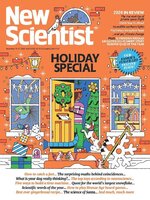 Dec 14 2024
Dec 14 2024
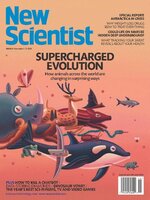 Dec 07 2024
Dec 07 2024
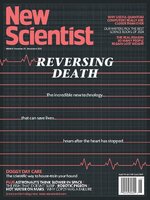 Nov 30 2024
Nov 30 2024
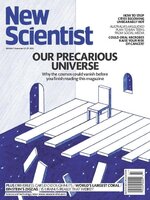 Nov 23 2024
Nov 23 2024
 Nov 16 2024
Nov 16 2024
 Nov 09 2024
Nov 09 2024
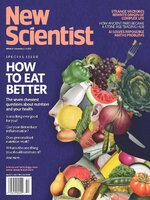 Nov 02 2024
Nov 02 2024
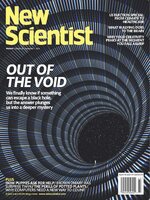 Oct 26 2024
Oct 26 2024
 Oct 19 2024
Oct 19 2024
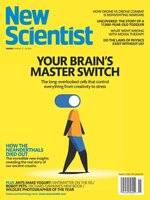 Oct 12 2024
Oct 12 2024
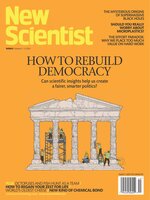 Oct 05 2024
Oct 05 2024
 Sep 28 2024
Sep 28 2024
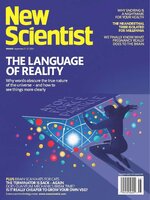 Sep 21 2024
Sep 21 2024
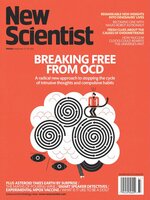 Sep 14 2024
Sep 14 2024
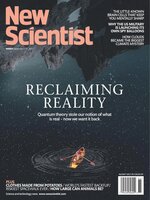 Sep 07 2024
Sep 07 2024
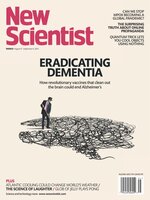 Aug 31 2024
Aug 31 2024
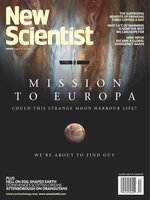 Aug 24 2024
Aug 24 2024
 Aug 17 2024
Aug 17 2024
 Aug 10 2024
Aug 10 2024
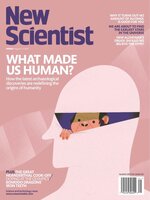 Aug 03 2024
Aug 03 2024
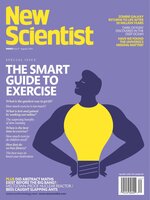 Jul 27 2024
Jul 27 2024
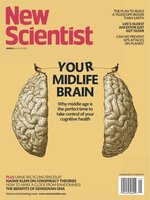 Jul 20 2024
Jul 20 2024
 Jul 13 2024
Jul 13 2024
 Jul 06 2024
Jul 06 2024
